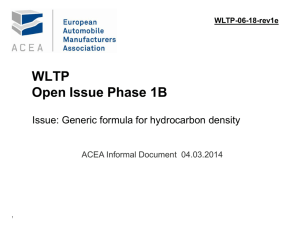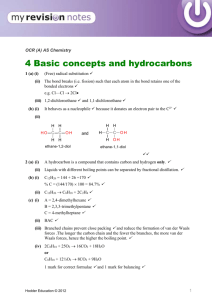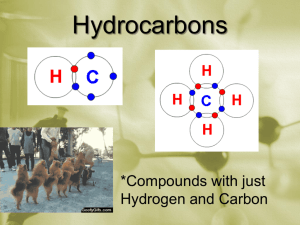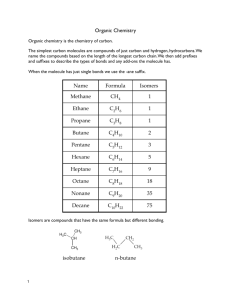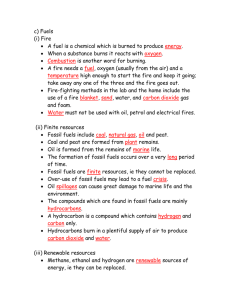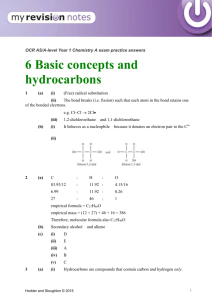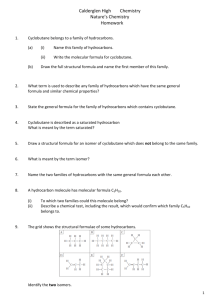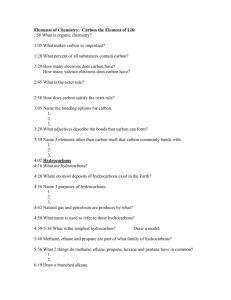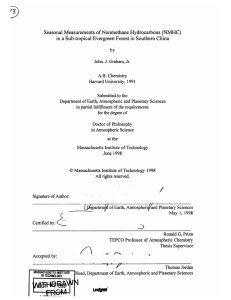Proposal on density N…
advertisement
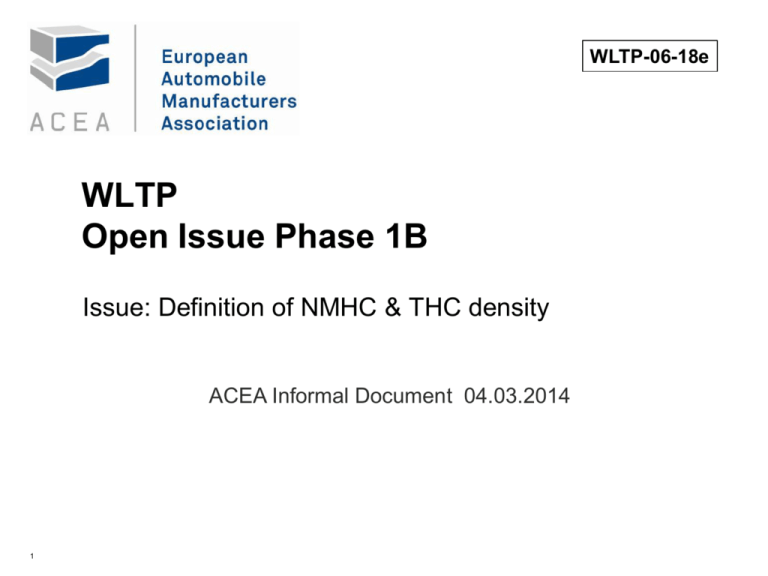
WLTP-06-18e WLTP Open Issue Phase 1B Issue: Definition of NMHC & THC density ACEA Informal Document 04.03.2014 . 1 Current Text of WLTP gtr 3.1.2. The mass of gaseous compounds emitted by the vehicle during the test shall be determined by obtaining the product of the volumetric concentration of the gas in question and the volume of the diluted exhaust gas with due regard for the following densities under the reference conditions of 273.15 K and 101.325 kPa: Carbon monoxide (CO) ρ = 1.25 g/l Carbon dioxide (CO2) ρ = 1.964 g/l... Page 2 2 Current Text of WLTP gtr 3.1.2. ...Hydrocarbons: for petrol (E0) (C1H1.85) for petrol (E5) (C1H1.89O0.016 ρ = 0.619 g/l ρ = 0.631 g/l for diesel (B0) (C1H1.86) ρ = 0.619 g/l for diesel (B5) (C1H1.86O0.005) ρ = 0.622 g/l for LPG (C1H2.525) for NG/biomethane (CH4) ρ = 0.649 g/l ρ = 0.714 g/l for ethanol (E85) (C1H2.74O0.385) ρ = 0.932 g/l The density for NMHC mass calculations shall be equal to that of total hydrocarbons at 273.15 K and 101.325 kPa and is fuel-dependent. Page 3 3 Proposal: A generic formula for the density of total hydrocarbons and nonmethane hydrocarbons respectively should be added. The ratios of H/C and O/C for reference fuels shall be taken from Annex 3. These numbers have to be added to the actual draft. The density shall be rounded to three decimal places. Rationale: The density of total hydrocarbons (HC) and non-methane hydrocarbons (NMHC) of different types of fuel differ due to varying H/C and O/C ratios. This approach supports the simple adaption to future reference fuels or changes to the existing ones. A generic formula in combination with the nomination of the H/C and O/C ratios in Annex 3 results in clarification and standardization of the density values. This approach can also be the base for the calculation of the fuel consumption in Annex 7.6. Page 4 4 Generic formula: 𝛒𝐇𝐂/𝐍𝐌𝐇𝐂 = 𝐌𝐖𝐂 𝐠 𝐠 𝐠 𝐇 𝐎 + × 𝐌𝐖𝐇 + × 𝐌𝐖𝐎 [ ] 𝐂 𝐂 𝐦𝐨𝐥 𝐦𝐨𝐥 𝐦𝐨𝐥 𝐥 𝐕𝐌 [ ] 𝐦𝐨𝐥 ρHC/NMHC: density of total hydrocarbons and non-methane hydrocarbons [g/l] MWC: molecular weight of carbon = 12.011 g/mol MWH: molecular weight of hydrogen = 1.008 g/mol MWO: molecular weight of oxygen = 15.999 g/mol VM: molar volume for an ideal gas at 0°C and 101.325 kPa = 22.413 l/mol H/C: ratio of hydrogen to carbon for a specific fuel CxHyOz O/C: ratio of oxygen to carbon for a specific fuel CxHyOz Page 5 5 Generic formula with physical constants: 𝛒𝐇𝐂/𝐍𝐌𝐇𝐂 = 𝟏𝟐. 𝟎𝟏𝟏 + 𝐇 𝐎 × 𝟏. 𝟎𝟎𝟖 + × 𝟏𝟓. 𝟗𝟗𝟗 𝐂 𝐂 𝐠/𝐥 𝟐𝟐. 𝟒𝟏𝟑 Example petrol E(5): C1H1.89O0.016 𝛒𝐇𝐂/𝐍𝐌𝐇𝐂 𝟏𝟐. 𝟎𝟏𝟏 + 𝟏. 𝟖𝟗 × 𝟏. 𝟎𝟎𝟖 + 𝟎. 𝟎𝟏𝟔 × 𝟏𝟓. 𝟗𝟗𝟗 = 𝐠/𝐥 𝟐𝟐. 𝟒𝟏𝟑 = 𝟎. 𝟔𝟑𝟐 𝐠/𝐥 Page 6 6
